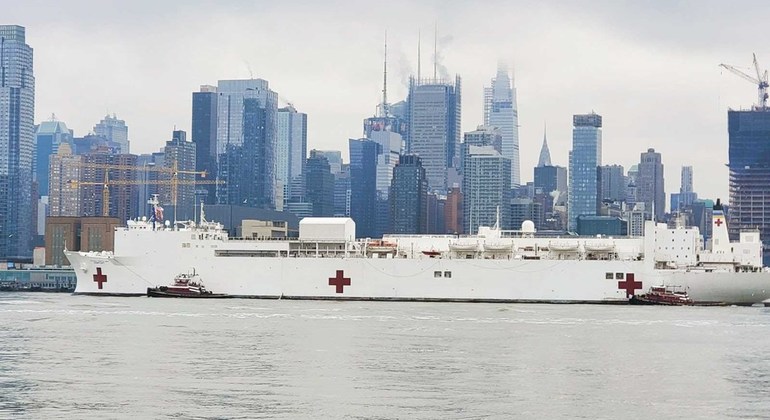The Working Group of Experts on People of African Descent said that structural discrimination could worsen inequalities surrounding access to healthcare and treatment, which could lead to a rise in disease and death rates among people of African descent.
“Despite robust responses, States have not recognised the specific health risks faced by people of African descent or how racial discrimination and implicit bias and racial stereotypes may pervade policy”, chair Ahmed Reid said in a statement.
Members highlighted two other areas of concern in the current crisis: lack of representation of people of African descent at high levels, and the link between discretion in data collection and risk.
“Interventions that appear neutral on their face may license or facilitate racial bias, without care and attention. Thus far, no protection efforts have focused the public health response on the specific vulnerabilities of people of African descent”, said Mr. Reid.
Research, care solutions impacted
“This also raises the parallel concern that even research and knowledge production in response to this crisis may overlook specific barriers to care or the racially discriminatory impact of policy.”
The statement underlined the need for “stressed and overwhelmed healthcare workers and local leadership” to be given more guidance to prevent racial discrimination at this critical time. This includes having disaggregated data to ensure equitable treatment.
The Working Group also pointed out that “disproportionate numbers” of people of African descent are employed in service industries, live in densely populated communities, or face difficulties in accessing food and water, all of which impact risk and vulnerability.
“In many States, people of African descent disproportionately serve as home health aides, carers and delivery personnel who help hospitals and health care systems focus on the most serious cases, despite no public efforts to ensure their safety and protection”, said Mr. Reid.
‘Disproportionate presence’ in jails, refugee camps
The expert group also is concerned about the “disproportionate presence” of people of African descent in locations such as jails and refugee camps across the world, where contagion risk is higher.
“The ongoing availability of people of African descent to serve in this crisis should not be construed as disposability”, Mr. Reid said.
“States using this pandemic to suspend or roll back human rights relating to affirmative action, the environment, public health, criminal justice, and governance, generally disproportionately impair people of African descent in ways that will persist, long after the crisis is resolved”.
The Working Group was appointed by the UN Human Rights Council in line with a declaration adopted at the global conference on racism, racial discrimination and xenophobia, held in South Africa in 2001.
Its five members are not UN staff, nor are they paid by the Organization.



